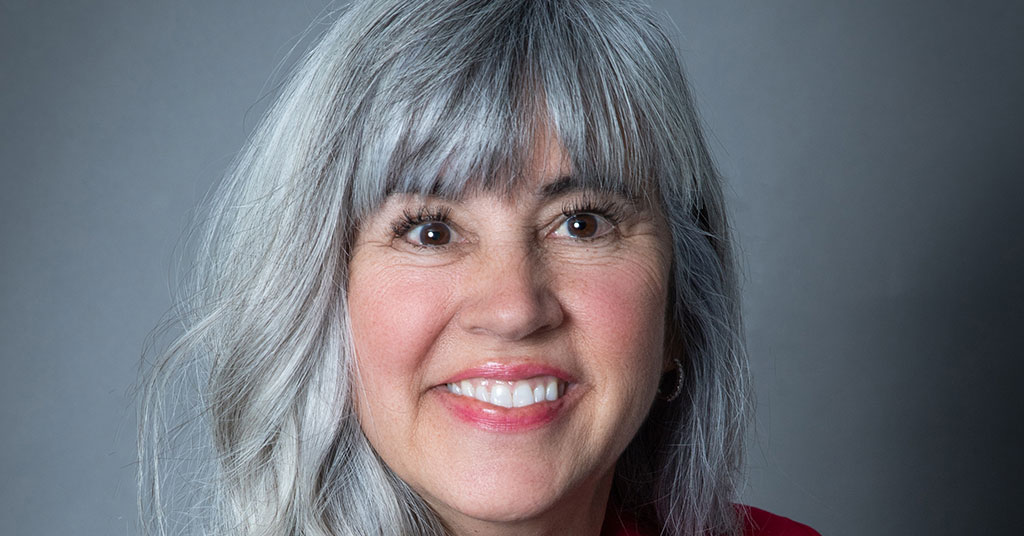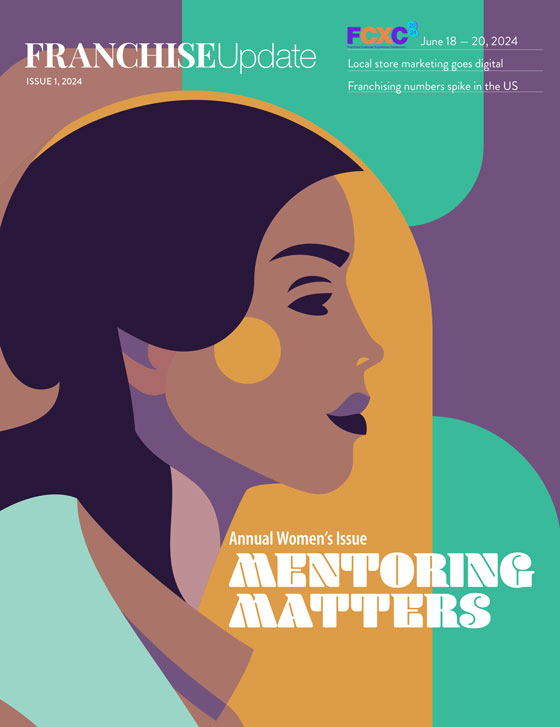Female Mentors:Mary Kennedy Thompson Leading the Next Gen to the C-Suite

Name: Mary Kennedy Thompson
Title: Chief Operating Officer
Company: Neighborly
Years in Franchising: 30
Number of Units: Neighborly has more than 5,000 franchises (U.S. and International)
Can you describe the role mentoring has played in your career? I have been very blessed to be mentored and sponsored by a number of people. Probably my top mentor was Mike Bidwell, former CEO of Neighborly. He showed me when I was going in the right direction and walked me through when I was heading in the wrong direction. Mike gave me clear, unemotional, factually based feedback on how I could be a better executive, leader, and human being.
Why is mentoring important for female franchise leaders? It’s important for both men and women. It’s important that men and women be mentored by both men and women. I often have women ask me to mentor them, and I will. When I’m done, I usually recommend a male mentor because both sides are important, and we work in an environment with both men and women.
What are the key elements of a good mentoring relationship? Trust is first and foremost. Honesty and willingness are second. Mike was willing and brave enough to have conversations that mattered. He told me things I needed to hear that weren’t always comfortable.
Finally, you need to be clear on what you want to accomplish. If I’m being mentored or somebody’s asked me to spend time with them, I want goals. What do you want to accomplish? What do you want to learn? What do I want to learn? How can we get there?
What are the benefits of mentoring programs for female leaders looking to advance their careers? Anybody looking to advance their career should find people to learn from and ask for help. I’m not a big believer in official mentoring programs because mentoring is very organic. You find somebody who connects with you, or you connect with them, and you want to learn from them. When we make mentoring too formal, or we get in the middle of the relationship, it stifles the mentoring that needs to happen.
That doesn’t mean we shouldn’t encourage mentoring and set up environments where people are willing to actively mentor. But if you’re a leader—man or woman—you need to have somebody you’re learning from. It’s not learning so you can advance your career; it’s learning so you can be better and stronger and help grow your company. That, in turn, will help you advance your career.
What should the mentoring process include? Set up an environment that encourages people to share and help one another. When one grows, they all grow. Establish clear goals and be consistent. When someone asks me to mentor them, I ask, “Why? What do you want to learn?”
Then, I ask them to do something. I have books that I’ll have them read because they need to have skin in the game and do some work ahead of time. If I ask somebody to mentor me, I’ll say, “What’s the book you’re reading now?” or “What’s a book you think I need to read?” That’s a big part of the process. It’s not a one-way relationship; it’s a two-way relationship. Part of that should be the homework and the hard work you’re willing to put in.
How is a mentor different than a coach? A coach is a person whose team you join. Oftentimes, you don’t necessarily join the team for the coach. You join because you want to be part of the team. You join a company because you want to be part of the company, and there’s a CEO or your boss who’s the coach.
A mentor is somebody you look for who might be outside of your normal circle. They see things differently or have a different set of experiences than yours. A mentor cares about where you’re going, has experience, maybe, from a different place than where you’ve been, and can help you understand how to get there.
What role did mentoring play in your path to the C-suite? Everything. I heard someone say once, “You know, I want to be a diamond.” A diamond is brilliant, strong, and sparkly. It’s the strongest thing out there. What does it take to be a diamond? You have to be cut by another diamond. I look for diamonds everywhere, and diamonds aren’t all in the C-suite. In fact, many are well outside of the C-suite. Some people are two years into franchising and have something significant to teach.
Mentoring has meant everything in my path to the C-suite, but I didn’t seek mentoring to take me along my path. I sought the mentoring to learn and grow.
How has what you learned from a mentor helped you navigate difficult career challenges? When I got recruited by Mike to join Neighborly, it was a hard decision. I had been with Cookies by Design for more than 12 years. It was a brand I had grown up in. I loved the people and still love them. I’ve always been very close to the founder, so I went to her and shared that I had this opportunity. It was a hard decision to make. She said, “You know, you have to make the decisions. Nobody else is going to make those for you.”
A peer at Cookies by Design said, “Mary spends so much time discussing the past that she doesn’t think enough about the future.” I didn’t know who this person was, but it was a mentoring moment for me. It really helped me. I don’t think that person will ever know how much they helped me move into my new role.
How did mentoring help you in other business relationships? I started running with somebody who’s the CEO of a large platform company. We started mentoring in those moments. If you asked her, she would say we mentored each other. There were things I had done that she hadn’t, and there were many things she had done. This helped me connect with people.
One of the most brilliant networkers I ever watched was Dina Dwyer-Owens. She was a brilliant networker. When I got to watch, see, and understand, I found that networking is the beginning of mentoring. Networking has helped in my business relationships—going to somebody and saying, “Have you ever done this? What do you think about this? What do you know about this issue?”
In what ways has mentoring helped you set goals and achieve objectives? I had a mentor who was the CEO of Money Mailers. He grew up in a fishing village in Africa. He was the youngest of four boys, and when he was 12, his parents and his brothers pulled him aside and told him they’d been saving their money for all these years for him to go to school. He earned two degrees, one from Harvard and one from Yale. He was probably the smartest, most brilliant mentor I ever had.
When I first took over as the leader for Cookies by Design, I didn’t know what I was doing. I told him that I’ve set goals for myself that I have to achieve. He asked, “Why were you hired for this role?” I responded with the specific goals I intended to accomplish. After a 10-minute discussion, he said, “Mary, they want you to think. You need to make time to think because if you don’t, you can’t set the goals, and you can’t achieve those objectives.” To this day, I schedule blocks of time in my calendar labeled as “prime think time.” Despite my inclination to constantly take action, I recognize the importance of pausing to think. He emphasized that thinking is the starting point for goal setting and objective achievement.
What were the three most important things you learned from mentoring? 1) As leaders, our job is to change people. I’m an extreme optimist, so I thought I could change everybody. I learned that sometimes you can’t change them fast enough. You have to change them because that’s what the organization needs, or maybe, that’s what the person needs.
2) The most effective leaders aren’t the loudest or the ones standing in front beating their chest. They’re the ones standing quietly in the corner, getting everybody else out there and directing them in subtle ways.
3) Do not take yourself so seriously, and have fun in the process. I’ve had multiple mentors tell me to relax and have fun because it goes really fast.
How can mentoring help the next generation of women on their path to the C-suite? I spoke to a group of about 500 women in TextDot. Their biggest question was, “How do we get a seat at the table?” You have to create results and hit your numbers. Mentoring can help this next generation find responsibilities that feed their soul. Mentoring can help you get to the right place, understand where that is, what the best path is, and what the pitfalls are.
What advice do you have for female executives considering mentoring? For any one time I’m mentoring somebody, I want to learn from somebody else as well. If you’re doing all the mentoring, you might want to think, “Maybe, I have something to learn from somebody else.” I’m amazed at how many times I’m sitting next to somebody who might be new in the business, and they have a great idea or have done something I’ve never done. If you’re somebody who’s always being mentored, maybe there’s some giving back you need to do.
Share this Feature
Recommended Reading:
FRANCHISE TOPICS
- Multi-Unit Franchising
- Get Started in Franchising
- Franchise Growth
- Franchise Operations
- Open New Units
- Franchise Leadership
- Franchise Marketing
- Technology
- Franchise Law
- Franchise Awards
- Franchise Rankings
- Franchise Trends
- Franchise Development
- Featured Franchise Stories
FEATURED IN

Franchise Update Magazine: Issue 1, 2024








 The franchise listed above are not related to or endorsed by Franchise Update or Franchise Update Media Group. We are not engaged in, supporting, or endorsing any specific franchise, business opportunity, company or individual. No statement in this site is to be construed as a recommendation. We encourage prospective franchise buyers to perform extensive due diligence when considering a franchise opportunity.
The franchise listed above are not related to or endorsed by Franchise Update or Franchise Update Media Group. We are not engaged in, supporting, or endorsing any specific franchise, business opportunity, company or individual. No statement in this site is to be construed as a recommendation. We encourage prospective franchise buyers to perform extensive due diligence when considering a franchise opportunity.